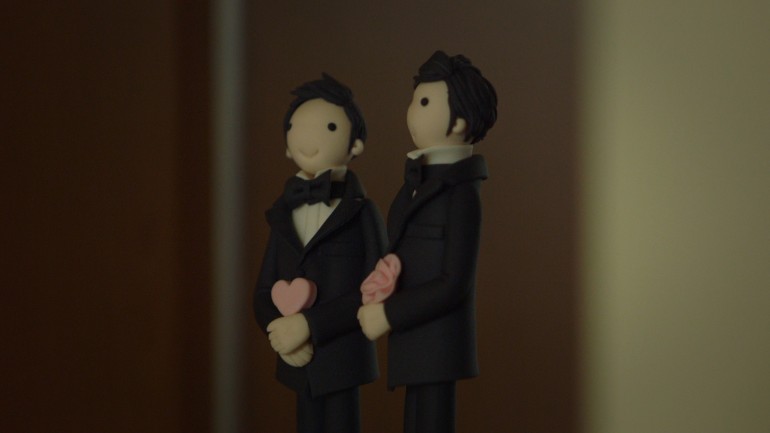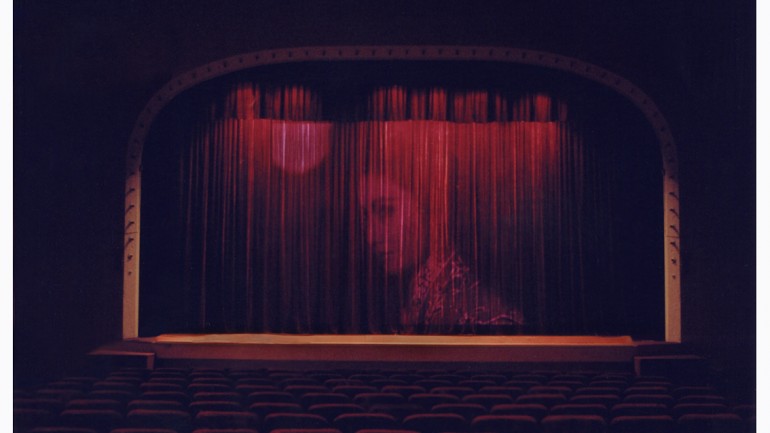Memoirs of a Superfan Volume 10.4
Eat, Drink and Be CAAMFest
“A child eats on screen”—this is my favorite scene. The camera focuses on a face. Bite. Chew. Idle glances around the room. Perhaps legs dangle from a chair. In the background, a mother or father prepares more food. It is a scene not just of domestic but universal significance. A child, inherently vulnerable, nourished and thriving. Survival, life, grace – all these are revealed hand-to-mouth.
Needless to say, I doubt I was nearly as cute stuffing oden, poke and quail egg silog into my face at the fantastic CAAMFeast on Saturday. But I digress.
Someone in a movie (was it Jiro Dreams of Sushi?) said eating was one of the essential signs of life. Our dependencies on food, air—and love—these are inescapable. They are our soft bellies. The hunger for any of them can drive a film, or a life. Deprivation wounds us, reminds us of our frailty. But without the wound, there is no reason for a journey. We are all deprived. We must all voyage far. Destination: CAAMFest.
All of the films in CAAMFest 2015 feature some kind of journey; the subtle light of the filmmaker illuminates a wound, a vulnerability, a need—and thus our humanity. Our journey as we take in this light brings us to compassion, surely, as it creates relationship and understanding that unifies across time and space. Relationship, understanding and compassion are essential if we are to bring together a world that threatens to fly apart even as it shrinks.
0.5 MM is a brilliant lens on power relationships and identity in modern Japan, well worth the three hour viewing time. I was entranced throughout. Sawa (Sakura Ando, nominated as Best Actress for Japan’s Academy Award for this film) has relationships with the elderly Japanese she cares for that showcase the vulnerabilities of all. The movie starts with her suctioning the mouth of a bedridden senior, and even catching his pee in a cup. “Pissing shows he is alive,” she says cheerily. The next twenty minutes are perhaps the most powerful opener I’ve seen in some time, a dramatic demonstration of the problems of subordinating oneself to another’s needs. How do you get out from under? Her engagements with older men continue, each becoming alternatingly dominant or a victim. The title comes from the visions of one of the men – “we can each move the world only 0.5 mm, but together we could move a mountain.” The relationships are all askew, steeped in mistrust and fear (see MOSF 9.2) – but Sawa ends up moving the world at least 0.5 mm by building a relationship of trust and hope with the strength of her spirit.

My Fair Wedding showcases Korea’s first same-sex wedding, between Kim Jho Gwang-soo and Dave Kim. Here, the wound is in society-at-large, its denial of a love it doesn’t understand. We watch hide-bound religious protestors clash with Koreans determined to expand acceptance for gays and lesbians. It’s a reminder, as we’re turning the corner here in the U.S., of how far most of the world has to go on this journey of hearts. At the end of the passage, a celebration.
Dean Yamada’s Cicada is an interesting and worthwhile narrative feature, with characters unusual for Japanese film, as far as I’ve seen. A ne’er-do-well brother in law, always asking for a handout; a man on the verge of marriage who finds out he’s infertile; his girlfriend, desperate for a proposal; a 9 year old boy who’s bullied at school; his mother who goes to extremes to help him – this quirky play of needs crying out for relatedness succeeds as both comedy and drama. The wonderful ensemble cast led by Yugo Saso leads us to a destination of caring and connection.

Academy Award winner Ruby Yang returns to CAAMFest with two films, 2009’s wonderful A Moment in Time, memorializing Chinatown movie theaters, and My Voice, My Life. The latter film follows “Band 3” students in Hong Kong, the “lower tier” disabled and marginalized youth who seem to be off the track of the island’s stereotypically achievement-oriented culture. Yet the adults in this film care about them, and find a way to engage them and build their confidence, abilities, and relationships through music, acting and dance. All are left in tears of joy as they realize of how far the students have come, and how far they can go when they believe in themselves.
Senior festival programming consultant Linda Blackaby highlighted Storm Children, Book One and River of Exploding Durians as must-see epics. The first is a documentary about 2013’s Typhoon Yolanda in the Philippines. The second is an intimate portrayal of the conflicts of love and political activism, quite relevant to our Bay Area milieu. Both feature our human vulnerabilities to both nature and human nature.
I’m really looking forward to Joyce Wu’s directorial feature debut She Lights Up Well. Here, Sophie faces her own vulnerability, as an easily dismissed and stereotyped Asian American actor who has to learn how to make it work for herself. I loved the hilarious trailer/short precursor to this film, CAAMFest 2013’s Screaming in Asian. Wu will be in town for both screenings. From a bite of the Big Apple to a rumble through the Motor City, Joyce makes humor as essential as food for our journey.
Tough Love is Stephanie Wang-Breal’s look at parents struggling to regain custody of their children through Seattle and New York’s family court systems. Hannah, a Bangladeshi American, and Patrick, a White American, come to this process with deep wounds from their own families of origin, and struggle not to visit their legacies upon their children. It was eye-opening and heart-warming to see the circle of caring around these individuals. Judges, social workers, community advocates – all women – weave community and family around them even as they exhibit the “tough love” of the title. Yet in the end, both parents turn their lives around in order to reunite with their children.
If a parent can change their lives for their child, why can’t the whole world transform for a child’s sake?
All to see a little boy or girl put food in their mouths, and chew.
Ravi Chandra, M.D. is a San Francisco psychiatrist and writer. He writes The Pacific Heart blog for Psychology Today. You can find him on Facebook, Twitter, and best of all, sign up for an occasional newsletter here, and find out about his upcoming book on the psychology of social networks through a Buddhist lens, Facebuddha: Transcendence in the Age of Social Networks, and his e-book on Asian American Anger. More CAAMFest MOSF blog posts can be found here and here.
Note: This post has been updated to include the paragraph on She Lights Up Well.





1 Comment